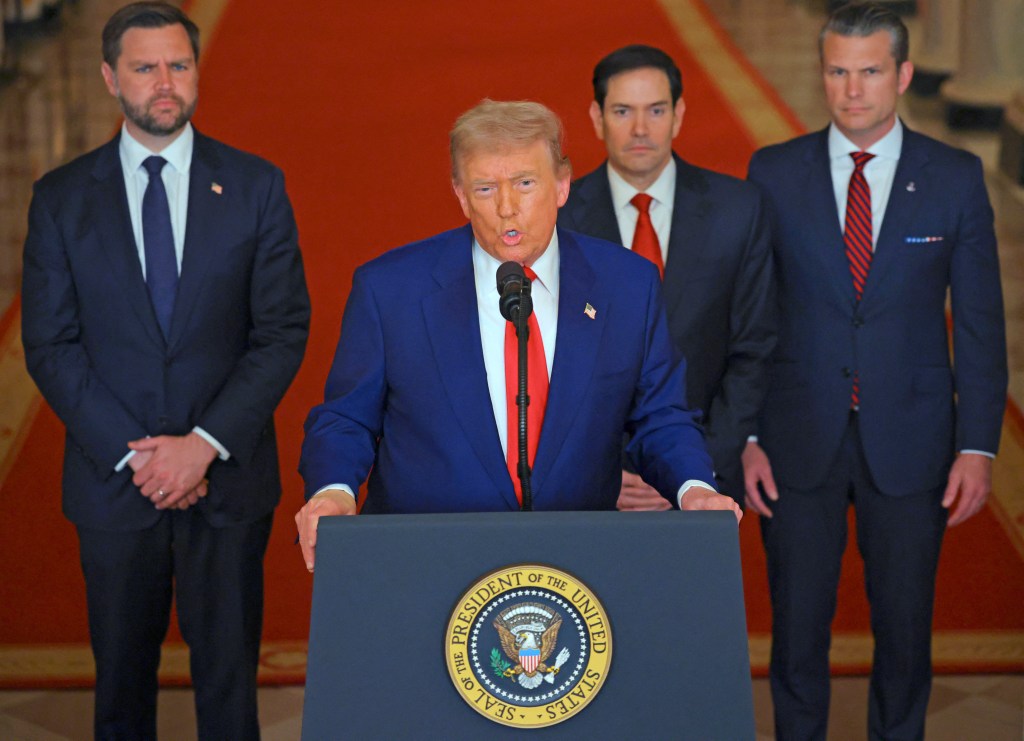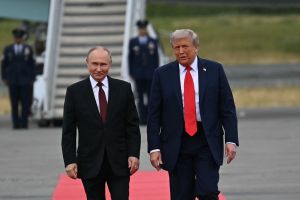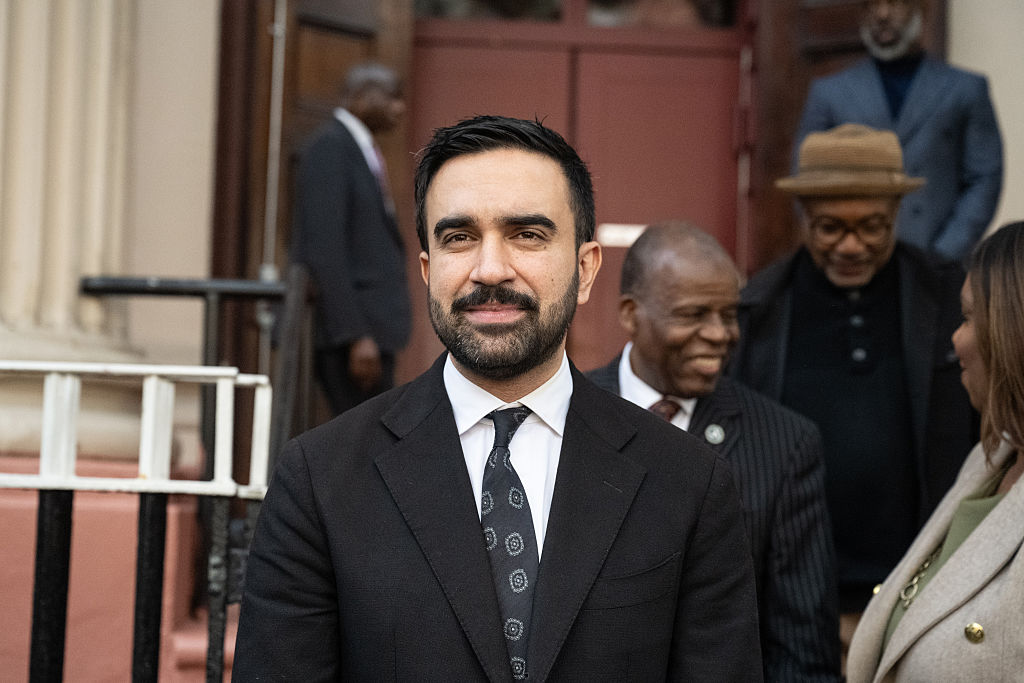On Thursday, President Trump gave Iranian Supreme Leader Ayatollah Ali Khamenei and the regime he has led for more than 35 years an ultimatum: start negotiating over your nuclear program, or face the full consequences. He would allow another two weeks, at most, for Tehran to prove its willingness to negotiate sincerely.
The two weeks, however, was only two days. Trump’s decision to drop a reported six 30,000-pound bunker-buster bombs on Fordow, Iran’s deeply-buried underground uranium enrichment facility, as well as on facilities at Natanz and Isfahan, was the culmination of eight days of deliberations within the Trump administration. It was a long eight days for Trump, no doubt, with Senator Lindsey Graham on one side urging him to take care of Iran’s nuclear program militarily; former Fox News host Tucker Carlson was on the other, counseling the president to stick with his “America First” principles of non-interventionism.
Ultimately, Trump split the baby – or at least tried to. The way the White House describes it, Trump is taking decisive military action on Iran without getting bogged down in another long, drawn-out, convoluted mess in the Middle East. There will be no regime change as Israeli prime minister Benjamin Netanyahu wants, nor will there be US boots on Iranian soil. Trump shared these details with Fox host Sean Hannity, and added that all of the Iranian nuclear sites targeted were completely destroyed.
But let’s face it: America’s capabilities were never in dispute. The question wasn’t whether the United States could bomb buildings both above and below ground, but whether bombing was the right way to address the Iranian nuclear issue. The armchair warriors on cable TV news are gloating about how great the operation turned and how resolute Trump proved to be, but none appear particularly interested in the first, second and third order effects of the decision. And there are plenty to mention.
The most immediate consequence will be Iranian retaliation. Khamenei has virtually assured that some kind of military retaliation against U.S. bases in the region will occur. There are plenty of those bases around, and Tehran has quite a few options at its disposal. By entering a war Israel started, Trump has now opened up the possibility of US troops having targets on their backs. While the Iranians have used perhaps as many as half of their ballistic missile inventory against Israel over the past eight days, there are still hundreds upon hundreds of them available to sail across the Persian Gulf into an American military installation.
Some pundits will dismiss the Iranians as a fairly weak conventional power – not worthy of our concern. Yet even a weak power has some arrows in its quiver. If one of those quivers kills an American, Trump will feel an even greater amount of pressure to plunge further into the muck.
Zooming out, another potential consequence: will Khamenei react to this US strike by throwing up his hands and begging for forgiveness – or by rebuilding what was destroyed? You won’t find many analysts who know Iranian history and how the Islamic Republic operates betting on the former scenario. The only thing more dangerous to Khamenei than US military force is submitting to American demands. Indeed, it’s one of the reasons why the Iranians refused to meet the Trump administration’s nuclear demands when Washington imposed maximum pressure sanctions on the regime. Doing so would have been viewed as an embarrassment on the international stage – and from the regime’s perspective, it would have served as a stepping-stone for America issuing even stronger demands in the future.
In sum, don’t expect the Iranians to wave the white flag. Instead, the regime is more likely to use the US strikes as a rationale to boot all international inspectors out of the country, suspend or withdraw from the Nuclear Non-Proliferation Treaty, and redouble their efforts to reconstruct the nuclear infrastructure the Americans and Israelis just wiped out.
Those within the regime who were arguing that a nuclear weapon was absolutely essential to keep foreign powers at bay will be further empowered. And the Supreme Leader, who the US intelligence community assessed had yet to give the order to actually build a bomb, will have more reason to change his strategic calculations.
Trump claims he’s a master negotiator. On Iran, he claimed diplomacy was his preferred choice and authorized his old pal Steve Witkoff to get a deal done. But in the end, he opted for bombing and tweeting over negotiating.


























Leave a Reply